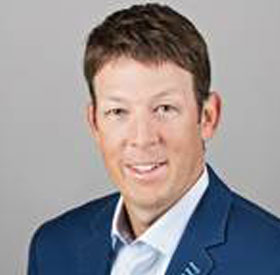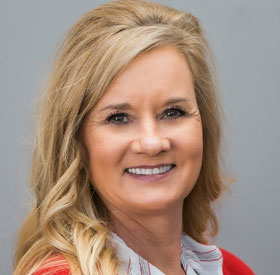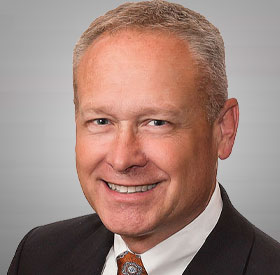Texas Reverse Mortgage Experts
What is a Reverse Mortgage?
A reverse mortgage allows homeowners aged 62 or older to convert part of their home equity into tax-free funds without selling their home or making monthly mortgage payments. The loan is repaid when the homeowner sells the house, moves out, or passes away. In Texas, the most common reverse mortgage is the Home Equity Conversion Mortgage (HECM), which is insured by the Federal Housing Administration (FHA).
Key Benefits:
- No Monthly Payments: Borrowers are not required to make monthly mortgage payments. Instead, the loan balance grows over time, and the loan is repaid when the home is sold or the borrower no longer lives in the property.
- Stay in Your Home: Reverse mortgages allow you to stay in your home as long as you meet the loan’s conditions, including paying property taxes, homeowners insurance, and keeping the home in good condition.
- Non-Recourse Loan: This means that neither you nor your heirs will owe more than the home’s value, even if the loan balance exceeds the value of the home when it is sold.
Eligibility Requirements:
- Age: You must be at least 62 years old.
- Primary Residence: The home must be your primary residence, and it should be in good condition.
- Home Equity: You should have at least 50% equity in your home.
- Financial Obligations: You must be able to pay property taxes, homeowners insurance, and HOA fees if applicable.
Types of Reverse Mortgages in Texas:
- HECM: The most popular type, with a loan limit of $1,149,825 in 2024. Funds can be used for any purpose, and the loan is backed by the FHA.
- Jumbo Reverse Mortgages: For homes valued above FHA limits, offering loans up to $4 million, but without FHA insurance.
- Reverse Mortgage for Purchase (HECM for Purchase): Allows seniors to purchase a new home using a reverse mortgage, reducing the need for monthly payments.
How Does a Reverse Mortgage Work in Texas?
A reverse mortgage in Texas allows homeowners aged 62 or older to convert part of their home equity into cash, without having to sell their home or take on monthly mortgage payments. Unlike traditional loans, a reverse mortgage pays the homeowner, providing funds either in a lump sum, monthly payments, or as a line of credit. The loan is repaid when the homeowner sells the house, moves out, or passes away. Texas has specific regulations in place to protect homeowners, ensuring that they can stay in their homes as long as they meet the loan’s terms.
How Do You Qualify for a Reverse Mortgage in Texas?
To qualify for a reverse mortgage in Texas, homeowners must meet certain criteria:
- Be at least 62 years old.
- Own the home as their primary residence.
- Have significant home equity, typically at least 50%.
- Meet financial obligations such as property taxes, homeowner’s insurance, and upkeep.
- Complete a counseling session with an approved reverse mortgage counselor to understand the loan terms and responsibilities.
Texas Reverse Mortgage Borrower Rights and Protections
Texas law provides reverse mortgage borrowers with robust rights and protections. Homeowners cannot lose their home as long as they meet the loan requirements, which include paying property charges and maintaining the home. Additionally, borrowers have the right to cancel the loan within a three-day period after closing. Texas also limits how much lenders can charge for fees, ensuring that borrowers are not taken advantage of.
What is Home Equity?
Home equity refers to the portion of your property that you truly own, free from any mortgage debt. It is the difference between the current market value of your home and any outstanding mortgage balance. In the case of a reverse mortgage, your home equity is converted into loan funds, allowing you to access cash based on the value of your home.
How is a Reverse Mortgage Different from a Regular Mortgage?
A reverse mortgage differs from a traditional mortgage in that the lender pays you instead of you making monthly payments. With a reverse mortgage, no monthly payments are required, and the loan balance is due only when you sell the home, move out, or pass away. This makes it an appealing option for retirees looking to access home equity without the burden of a monthly mortgage payment.
How Much Can I Borrow with a Home Equity Conversion Mortgage (HECM) or Proprietary Reverse Mortgage?
The amount you can borrow with a Home Equity Conversion Mortgage (HECM) or proprietary reverse mortgage depends on several factors, including your age, the current value of your home, and prevailing interest rates. HECM loans, which are insured by the FHA, typically allow borrowers to access a portion of their home’s value, up to the FHA loan limit. Proprietary reverse mortgages, offered by private lenders, may allow higher loan amounts for homeowners with higher-value properties.
How Much Does Reverse Mortgage Counseling Cost?
Reverse mortgage counseling is a requirement for all reverse mortgage applicants, and the cost typically ranges between $125 to $250. The fee varies depending on the counseling agency, and in some cases, it may be waived or covered by the lender. The session helps ensure that borrowers fully understand the reverse mortgage process and its implications.
What Should I Ask a Reverse Mortgage Counselor?
When speaking with a reverse mortgage counselor, consider asking the following questions:
- How will a reverse mortgage impact my financial situation?
- What are the total costs associated with the loan?
- Are there alternatives to a reverse mortgage that I should consider?
- How will a reverse mortgage affect my heirs and estate?
- What happens if I can’t meet the loan requirements, such as paying property taxes or insurance?
What Are the Other Upfront Costs of Reverse Mortgages?
In addition to the cost of counseling, there are several other upfront fees associated with reverse mortgages, including:
- Origination fees charged by the lender.
- Appraisal fees to determine the home’s market value.
- Closing costs such as title insurance, attorney fees, and recording fees. These costs can typically be rolled into the loan balance, but they still affect the total amount you can borrow.
What Are the Ongoing Costs for Reverse Mortgages?
After obtaining a reverse mortgage, borrowers must continue to cover certain ongoing costs, including:
- Property taxes and homeowner’s insurance.
- Maintenance and repairs to keep the home in good condition.
- Mortgage insurance premiums (for HECM loans). Failing to pay these costs can put the loan in default and risk foreclosure.
Is a Reverse Mortgage Taxable?
No, the funds you receive from a reverse mortgage are not considered taxable income. Since the money comes from the equity you’ve built in your home, it is considered a loan advance rather than earned income. However, it’s always wise to consult with a tax advisor for personal tax implications.
Do I Keep the Title to My Home if I Have a Reverse Mortgage?
Yes, with a reverse mortgage, you retain the title to your home. This means you continue to own the property as long as you meet the loan’s requirements, such as maintaining the home and paying property taxes and insurance.
Will a Reverse Mortgage Affect My Social Security or Medicare Benefits?
No, a reverse mortgage will not affect your Social Security or Medicare benefits, as these programs are not income-based. However, if you are receiving Supplemental Security Income (SSI) or Medicaid, reverse mortgage payments could impact your eligibility, depending on how the funds are used.
What is a “Non-Borrower” and a “Co-Borrower?”
A co-borrower is someone who shares ownership of the home and is also responsible for the reverse mortgage. A non-borrower is typically a spouse who lives in the home but is not a co-borrower on the loan. Texas laws provide protections for non-borrowing spouses, allowing them to remain in the home even if the primary borrower passes away, as long as loan terms are met.
When Does a Reverse Mortgage Loan Have to Be Repaid?
A reverse mortgage becomes due and payable when the homeowner passes away, sells the home, or permanently moves out. In some cases, repayment is triggered if the borrower fails to pay property taxes, homeowner’s insurance, or maintain the property.
What Can Trigger Foreclosure?
Foreclosure can occur if the borrower fails to meet the loan’s requirements, such as not paying property taxes or homeowner’s insurance, neglecting necessary home repairs, or moving out of the home for more than 12 months. Ensuring compliance with the loan terms is essential to avoid foreclosure.
What If I Cannot Pay My Property Charges, Such as Taxes and Insurance?
If you are unable to pay property taxes or homeowner’s insurance, it’s important to contact your lender immediately. In some cases, the lender may set aside funds from the loan to cover these costs. However, failing to address these obligations can lead to default and potentially foreclosure.
What Are Some Alternatives to a Reverse Mortgage?
There are several alternatives to a reverse mortgage that may be worth considering, such as:
- Home equity loans or lines of credit.
- Downsizing to a smaller, more affordable home.
- Selling the home and renting. Each option has its own benefits and drawbacks, so it’s important to assess your financial situation carefully before deciding.
How Do I Avoid a Reverse Mortgage Scam?
To avoid reverse mortgage scams, work only with reputable lenders, verify their credentials, and avoid unsolicited offers or high-pressure sales tactics. Be cautious of anyone promising guaranteed income or requiring upfront fees. It’s always a good idea to consult with a HUD-approved counselor or trusted financial advisor before making any decisions.
More Information
Whether a reverse mortgage is the right option for you depends on your personal circumstances. Explore all available options, including potentially less expensive alternatives. You can learn more from these resources:
- U.S. Department of Housing and Urban Development (HUD)
- HECM Program
- 1-800-CALL-FHA (1-800-225-5342)
- Consumer Financial Protection Bureau (CFPB)
- Reverse Mortgages Page
- 1-855-411-CFPB (1-855-411-2372)
- AARP Foundation
- AARP Policy Book Section on Reverse Mortgages
- 1-800-209-8085
Meet our Mortgage Team
Our Home loan experts will guide you through every step of the process, from pre-approval to closing.
Request a call back from one of our Mortgage Professionals
Mortgage Services in Texas
Altus Home Loans, Clarendon Home Loans, Colorado Springs Home Loans, Azle Home Loans, Seymour Home Loans, Grand Prairie Home Loans, Garland Home Loans, Abilene Home Loans, Flower Mound Home Loans, Irving Home Loans, Weatherford Home Loans, Lewisville Home Loans, Dallas Home Loans, McKinney Home Loans, Lubbock Home Loans, Grapevine Home Loans, Arlington Home Loans, Frisco Home Loans, Mesquite Home Loans, Richardson Home Loans, Plano Home Loans, Carrollton Home Loans, Amarillo Home Loans, Ft Worth Home Loans, Midland Home Loans, El Paso Home Loans, Vernon Home Loans, Denton Home Loans, Allen Home Loans, Wichita Falls Home Loans




